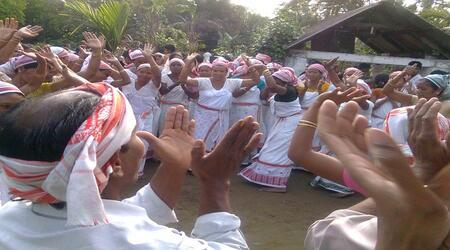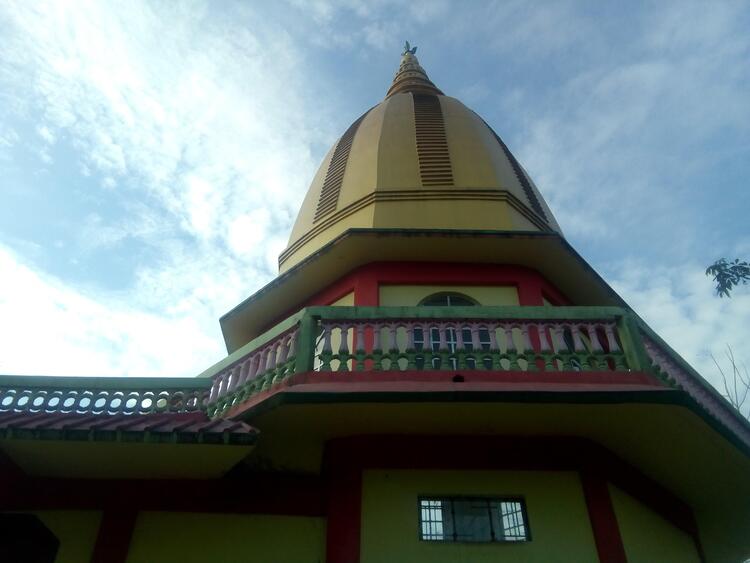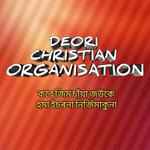
Deori People Group Profile in Brief
Geography:-Assam the land of Rhinos, exquisite flowers and proud, yet inviting people is located in the Northeastern part of India. Here lives a tribe called Deori, whose language is known by its tribal name and spoken in North-East Assam.
Deori people in Assam live in Tinsikia, dibrugarh, Sivasagar, Jorhat, Lakhimpur, Sonitpur, and Majuli districts. In Arunachal Pradesh, they live in Lohit (Mahadevpur area) district and Changlang (Sompoi Area) district. Their villages are primarily found alongside the Brahmaputra river valley. Annual floods of Brahmaputra deposit clay and other materials, which the people use for cultivation. This helps reduce the use of fertilizers in the area. The main crops of the area are rice, wheat, mustard, maize, jute and sugarcane.
People:-The Deori were once considered the priestly section of chutiya community of Assam. But they are not currently associated with the chutiya either in religion or in Social domains. The Deori are predominantly a rural community.

The group was once divided into four territorial groups Dibongya, Tengaponya, Borgeenya and Patorganya. The Patorganya are no longer exists, as it was reported by the people that they join with the other groups in Assam hence lost their identity as Deori. The Dibongya speaks the Deori language and followes Deori customs more strictly, which has made them more representitive of the cultural core of the Deori community. According to 2001 census the total revenue villages of Deori in Assam are 133 and their whole total population was around 200,000.
Religion and Belief:-The Deori tribe follows indigenous faith. They worship their ancestors, Kundigira-Kundigirasi (shiva-parvati), Boliya Baba (pisadema) and Tameshwari (pisasi). They also worship other Hindu deities. Deoris are very religious people. Since antiquity, Deori people worshiped God by singing hymns and holy songs. The priests play an important role in their every religious activities. Any religios festivals, social festivals and social functions, such as BISU-PATIBA (Two main festivals of Deori), BIYA-LAGABA (marriage), MIDIMUMA (worship) etc., can never organise or celebrate without presence of the recognised priests. The priests of Deori tribe are categorise into four categories. They are Bo-deri, Ho-deri, Bor-Bharali and Horu-Bharali. They are prime-persons in sacrificing their God in their temples. As mentioned in the History, they used to serve as priest in the Chutiya and Ahom kingdom and hence got the name "Deori"
Language Family:- Tibeto-Burma languages, Sino-Tibetan languages. Deori is a Sino-Tibetan language spoken by the Deori people of Assam and Arunachal Pradesh. Only one clan of the Deori tribe, the Didongya has retained the language, the others having shifted to Assamese, but among the Dibongya it is vigorous. It is related to the Bodo-Garo languages. The Deori and their language are frequently called Jimochaya. The Deoris are traditionally being priests of the Chutiya and Ahom Kingdoms.
Regions: Assam, Arunachal Pradesh (Deori is spoken in Lohit district, Arunachal Pradesh, and in Lakhimpur, Dhemaji, Tinsukia, Jorhat & Majuli district of Assam).
Native speakers: 70,000 (2011 census).
